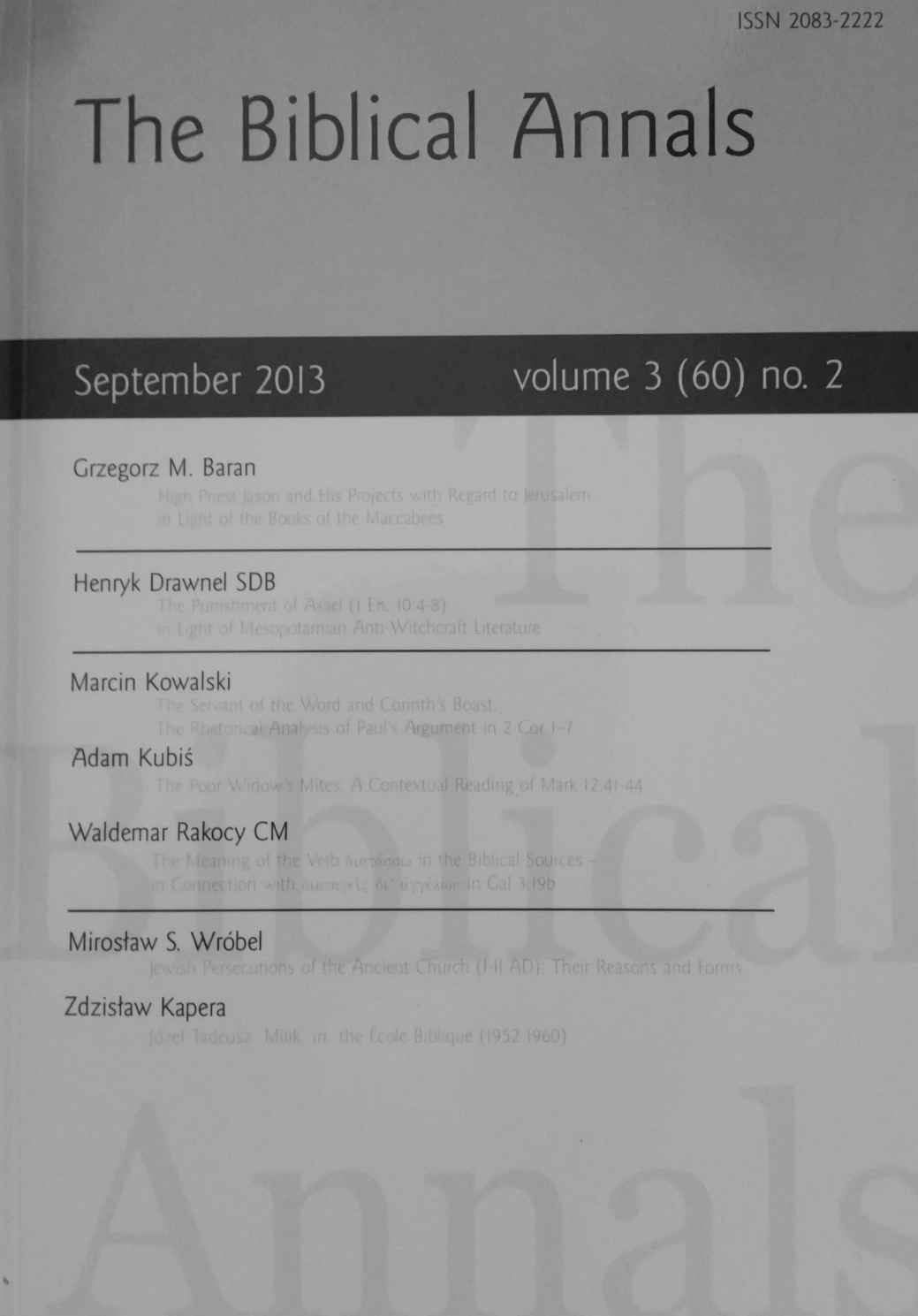Ukaranie Asaela (1 Hen. 10,4-8) w kontekście mezopotamskiej literatury zwalczającej czarną magię.
The Punishment of Asael (1 En. 10:4-8) in Light of Mesopotamian Anti-Witchcraft Literature.
Author(s): Henryk DrawnelSubject(s): Christian Theology and Religion, History of Judaism, History of Religion
Published by: Katolicki Uniwersytet Lubelski Jana Pawła II - Wydział Teologii
Keywords: 1 Enoch; Book of Watchers; Asael; his burial and burning; anti-witchcraft literature; Late Babylonian context;
Summary/Abstract: The literary pattern of Asael’s punishment in the Enochic myth (1 En. 10,4-8) does not seem to originate in biblical literature or Greek mythology. It is far more probable that Babylonian anti-witchcraft literature provides the proper background for most of the elements in that literary pattern. The Jewish composer who lived in Mesopotamia in Late Babylonian period treated Asael and other Watchers as warlocks against whom some elements of exorcistic rituals have to be applied. The elimination of Asael and other Watchers from the earthly realm paved the way for the Jewish context of knowledge transmission, exemplified by Enoch and his insight into the structure of the world, revealed to him by angels faithful to the God of Israel.
Journal: The Biblical Annals
- Issue Year: 3/2013
- Issue No: 60/2
- Page Range: 285-307
- Page Count: 23
- Language: English, Polish

